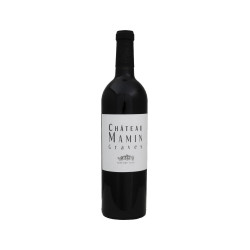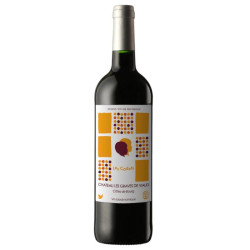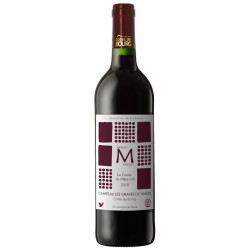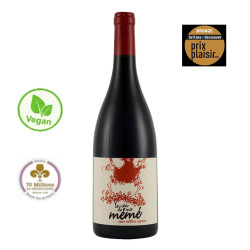Free delivery on purchases of €150 or more per winegrower in France and €250 in Europe (excluding United Kingdom)
Free delivery on purchases of €150 or more per winegrower in France and €250 in Europe (excluding United Kingdom)
-
- Great Offer
-
Our wines
-
-
By colors
-
All the wines
-
-
-
All Regions
-
-
-
-
Our organic & natural wines
-
-
Our Champagnes & Spirits
-
-
All Champagnes
-
-
Spirits
-
All the spirits
-
-
-
Our winemakers
-
-
-
winemakers
-
-
-
Our advice
-
-
Find your wine
-
-
-
- Our commitment !
-
- Great Offer
-
Our wines
-
-
By colors
-
All the wines
-
-
-
All Regions
-
-
-
-
Our organic & natural wines
-
-
Our Champagnes & Spirits
-
-
All Champagnes
-
-
Spirits
-
All the spirits
-
-
-
Our winemakers
-
-
-
winemakers
-
-
-
Our advice
-
-
Find your wine
-
-
-
- Our commitment !
Unbeatable !
WHAT IS VEGAN WINE?

EVERYTHING YOU NEED TO KNOW ABOUT VEGAN WINE
Just like the vegan diet, which involves consuming food entirely free from animal-derived substances, vegan wine is made with a 100% plant-based composition. While the concept of vegan food is relatively easy to grasp, the idea of vegan wine might raise some questions. After all, wine is made from grapes, which come from vines, so you might think its composition is entirely plant-based.
Well, think again. It’s not uncommon for winemakers and viticulturists to use certain products to create a "fining agent" (as it's called in industry terms) to remove particles and yeast residues suspended in the wine. In the wine world, this process is known as "clarification."
Vegan Wine: How Does It Differ from Organic Wine?
The fining agents used in wine production vary and often include egg whites, fish glue, or casein, a protein found in milk. All of these are of animal origin. However, it’s possible to replace them with plant-based fining agents made from vegetable proteins such as peas, wheat, or potatoes. This is the essence of vegan wine. Alternatively, vegan wine can also be produced by skipping the fining process altogether.
Although both vegan and organic wines are produced with environmental consciousness, there are notable differences. For instance, while organic wine production prohibits the use of animal-based products like gelatin or blood albumin, it still allows egg whites and casein. Therefore, a wine labeled as "organic" is not necessarily vegan, and vice versa.
Label V: A 100% Plant-Based Product
Identifying a vegan wine isn't always straightforward unless you buy directly from the producer and ask them. However, the recent emergence (in 2016) of certifications like Label V and E.V.E Vegan, which certify wine as a 100% plant-based product, is set to make this easier. Although only a handful of French wine producers have adopted these labels so far, considering the growing popularity of organic wine in recent years, vegan wines seem to have a promising future ahead.
Our nuggets
Related articles

HOW CAN I AVOID RED WINE STAINS ON MY LIPS AND TEETH ?
Red wine always goes down well, especially in the evening. As an aperitif, w...

WINE ON A STRING: ARE YOU FAMILIAR WITH THE CONCEPT?
If you go to a restaurant, the waiter may offer to serve you your wine "à la...

WHAT IS ORANGE WINE?
According to The Independent, orange wine is becoming increasingly popular...

WHAT IS THE DIFFERENCE BETWEEN A SWEET WINE AND A SYRUPY WINE?
As an aperitif, with a blue cheese or a chocolate dessert, there's always a ...





